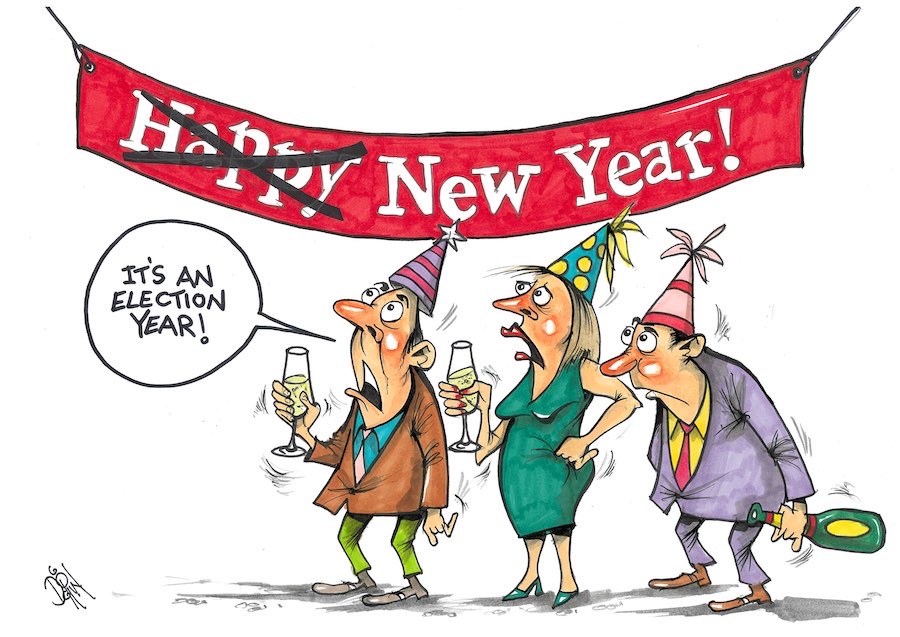
Home owners whose land has been rezoned to allow more housing have been paying excessive rates since the rezoning. Their rates have been based on an ‘anticipated’ value as if their land was redeveloped. That’s an error, writes legal columnist HUGH SELBY.
Dear Chief Minister,
I recommend your prompt attention (and that of your legal, planning and treasury advisers) to a problem raised and solved 100 years ago in the 1924 decision of the House of Lords (Privy Council) following the appeal of the brewer Tooheys from a decision of the NSW Supreme Court.
You can find it here.
I do not bring good news. I suggest that you have ready a Tooheys or two.
The case was about valuing blocks of land for a taxing purpose.
Tooheys was aggrieved by the method followed by the NSW Valuer to value the unimproved capital value (UCV) of land upon which they had licenced premises.
Their lordships were succinct and clear: it took a mere three pages to issue their unanimous opinion – a habit to which today’s lawyers and law students wish today’s judiciary would return,
The court found that the valuation was not made according to the method set out in the statute.
That method, as they pointed out, was to assume that there was nothing on the land by way of improvement, and then ask: “What would such land fetch on the market?”
They went on, and here is the concept ignored now in the ACT, that it was wrong to attribute a value to the liquor licence because that attached to buildings which, by the definition, were excluded from the valuation.
I hope that you are already ahead of me, seeing that the government rezoning, allowing existing blocks to be redeveloped (pursuant to the Territory Plan) is analogous to the government issue of liquor licences.
In both cases the government action permits uses to which the land can be put upon the appropriate application being approved; however, these uses are outside the calculation of the UCV of the land itself.
In the ACT the governing law is found in the Rates Act, 2004. It mandates the same approach now as in 1924.
S.6.1 The unimproved value of a parcel of land held under a lease… is the capital amount that might be expected to have been offered on a date (the base date), for the lease of the parcel, assuming that–
(a) the only improvements on or to the parcel were the improvements (if any) by way of clearing, filling, grading, draining, levelling or excavating….
and
(b) the circumstances that existed on the prescribed date also existed on the base date; and
(c) on the base date, the lease had an unexpired term of 99 years…
S 6.3 prescribed date, for a parcel of land, means–
(a) for a determination of the unimproved value of the parcel—the date the parcel became rateable; or
(b) for an annual redetermination of the unimproved value of the parcel—the date the redetermination applies; or…
Critically in the ACT in 2024, as it was in NSW in 1924, the concept of UCV does not embrace expectations or contingencies as to what uses the land might or might not be put – those being matters of planning regulation.
But the territory authorities think and act differently: “The unimproved value is what the block of land is worth subject to its highest and best use in accordance with the Crown Lease purpose clause.”
Note too that assessing a UCV is not an exercise in disguised “market value” assessment.
The Planning Act, 2023 defines “market value” (section 256) as:
“… the amount that could be expected to be paid for the lease on the open market if it were sold by a willing but not anxious seller to a willing but not anxious buyer”.
This is quite different to UCV. That market value applies (section 274) as follows:
“The territory planning authority must not grant a lease other than for payment of an amount that is not less than the market value of the lease”.
The Planning Act also confirms that a right to subdivide is not an attribute of the land itself. It is merely a claim that can be made by a lessee (section 287):
“The land described in a lease must at all times be held and occupied by or under the lessee as 1 undivided parcel…”
Taking account of all the above, the true position is that when a residential area is rezoned so that, for example, town houses can be built on one block, or the block can be subdivided for separate leases, the UCV of a block that has not been so redeveloped is as it is, not as it might be.
It follows that the large increase in rates (based on erroneous UCV calculations) in some suburbs (and possibly coming to your suburb, too) are wrong.
Those who have been paying much higher rates because their single parcel of land is wrongly treated as “subdivided” or covered in town houses should be entitled to the following:
- the recalculation of yearly UCV values in accordance with the law for each year since the rezoning;
- A refund of the rate overpayments for each year with interest.
The legislation should be amended to make clear that the lessee applying to redevelop/subdivide their block will be charged an appropriate fee.
Put another way, impose the charge on the developer, not the homeowner who wants nothing other than “quiet enjoyment” – the ability to sit at home, free of rates stress, and quench a thirst.
PS: Local valuers and the ACAT know about Toohey’s case. See paragraphs 56 -70 in the 2020 case of HTI-Watson.
Former barrister Hugh Selby’s free podcasts on “Witness Essentials” and “Advocacy in court: preparation and performance” can be heard on the best known podcast sites.
Who can be trusted?
In a world of spin and confusion, there’s never been a more important time to support independent journalism in Canberra.
If you trust our work online and want to enforce the power of independent voices, I invite you to make a small contribution.
Every dollar of support is invested back into our journalism to help keep citynews.com.au strong and free.
Thank you,
Ian Meikle, editor





Leave a Reply